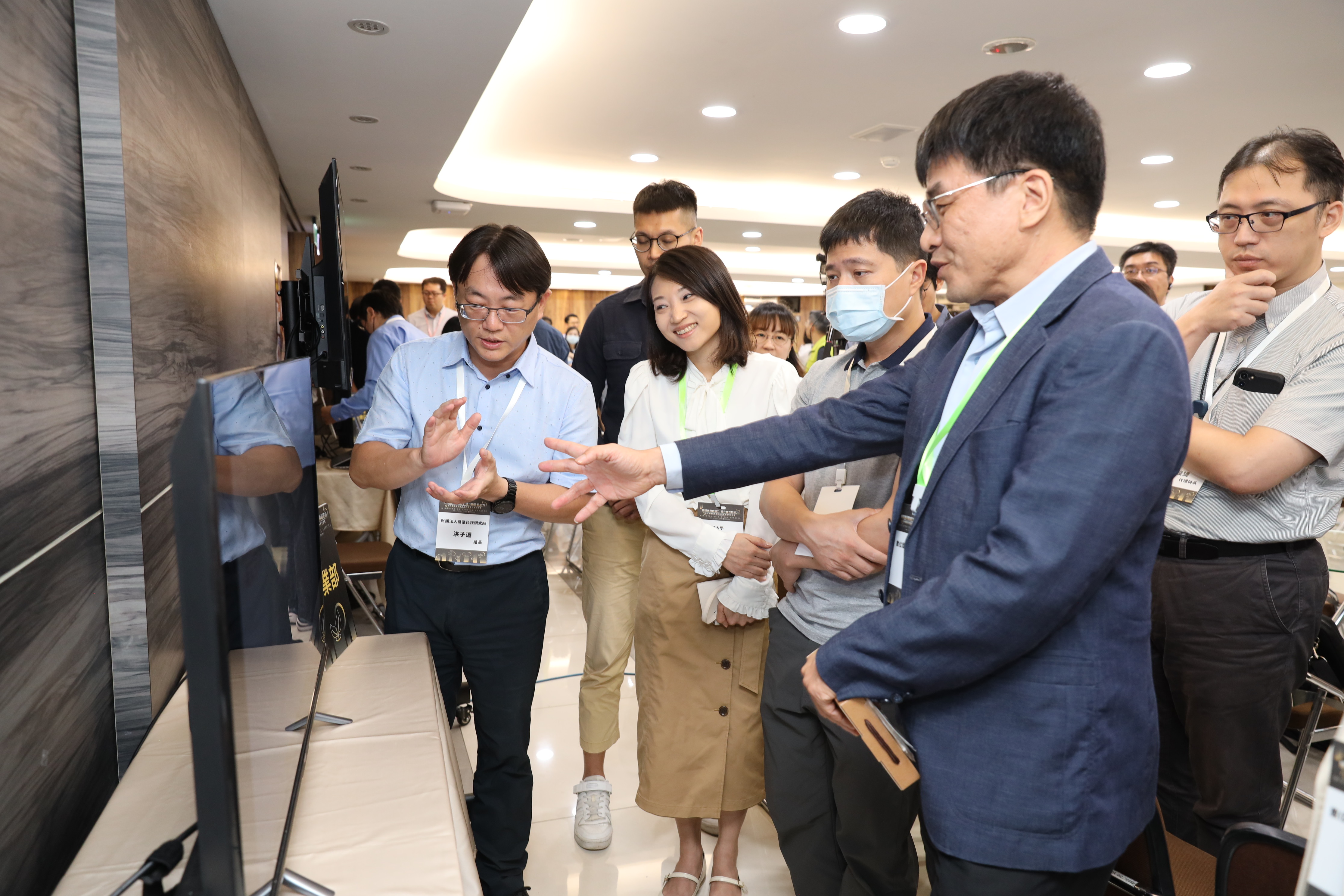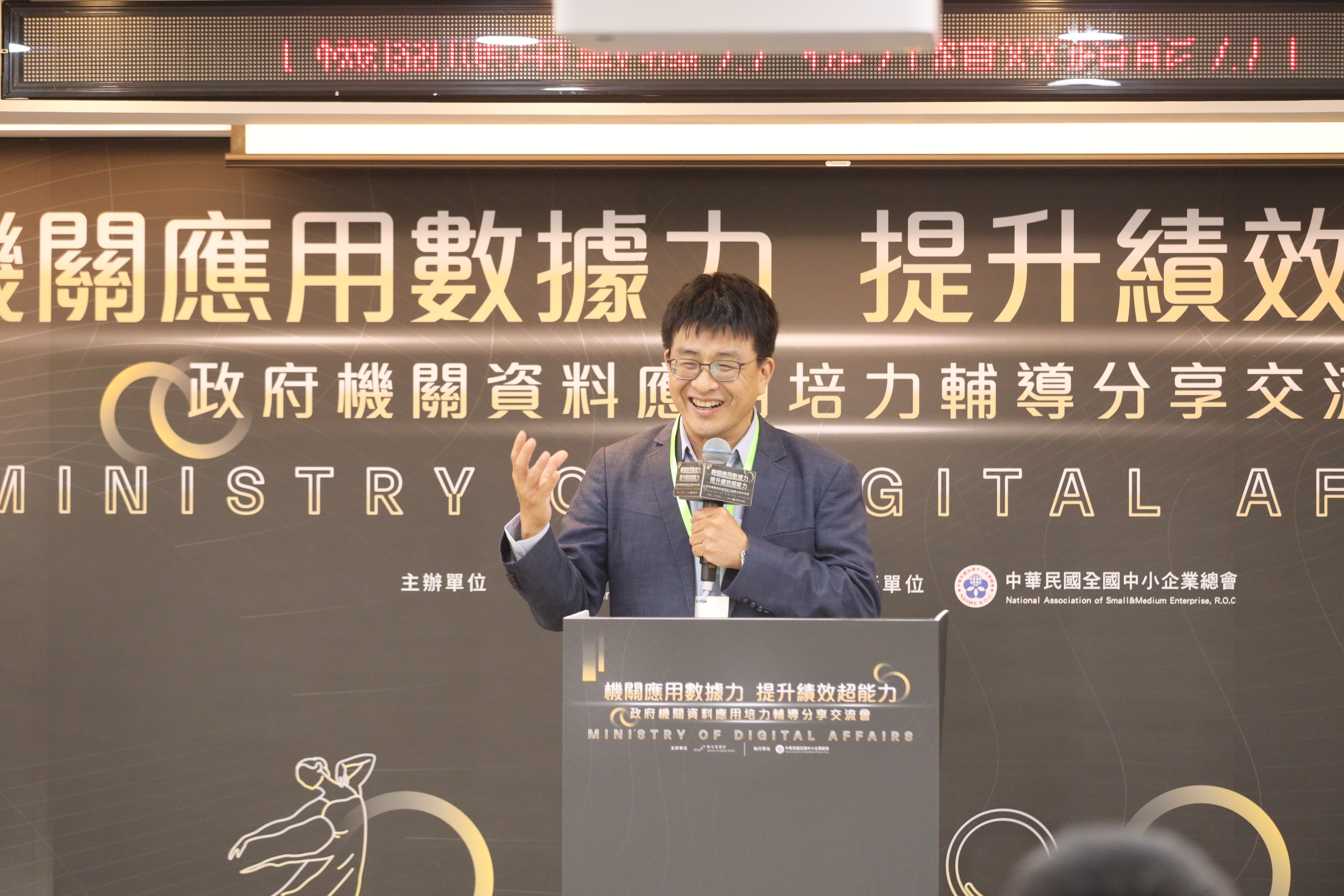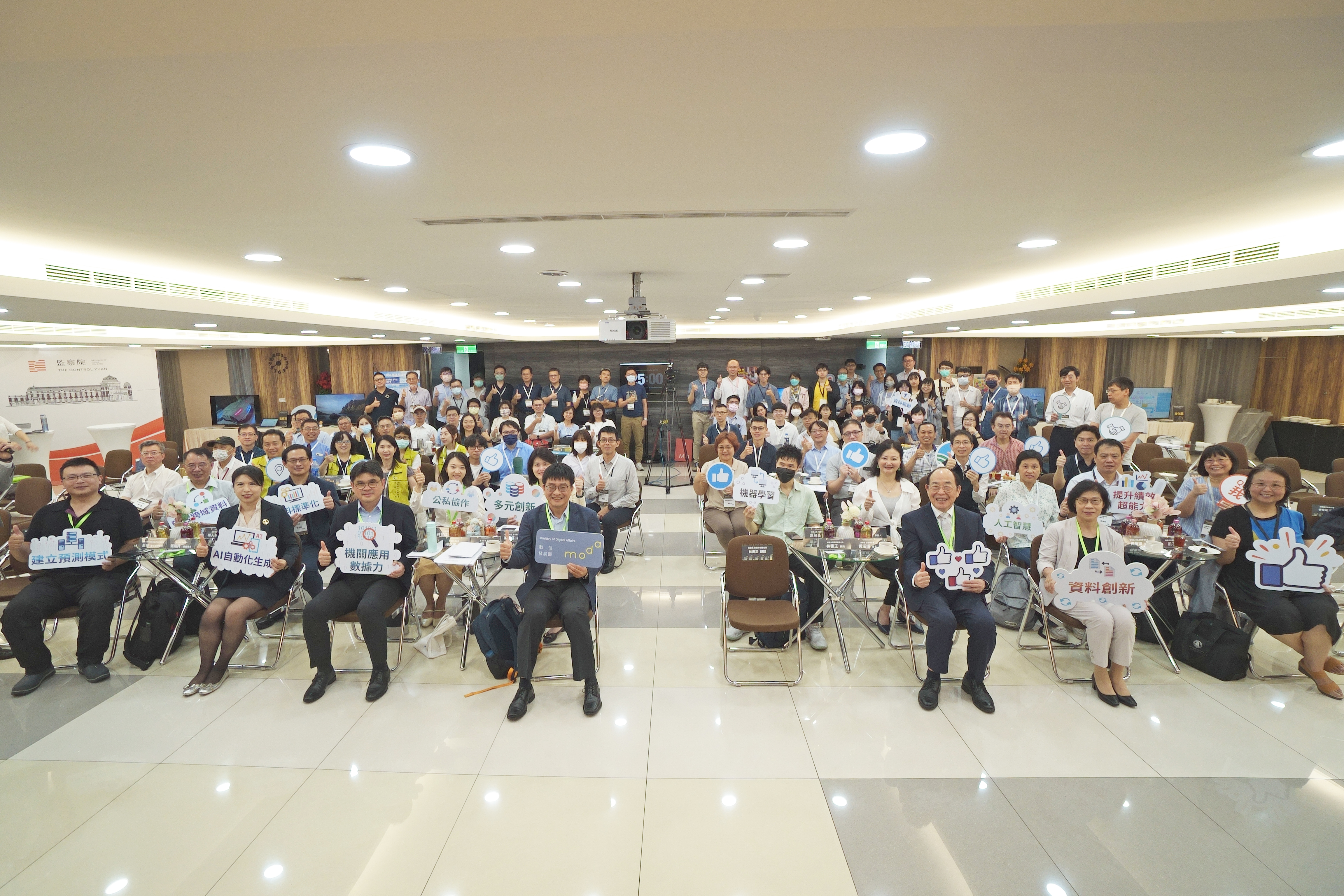Ministry of Digital Affairs Promote Data Empowerment of Government Agencies to Drive the Future with Data
The Ministry of Digital Affairs(MODA) held the" Meeting for Government Agencies Data Utilization Empowerment and Sharing Exchange." During the meeting, six agencies shared their data application cases, focusing on four main aspects: "internal processes optimization, cross-domain data integration, predictive models establishment, and artificial intelligence application." This initiative addresses problems and pain points, shapes government data application paradigms, and drives innovative data utilization capacities within agencies.
Deputy Minister Ning Yeh stated in his opening remarks that after the active and innovative cabinet officially took office, "Digitalisation," Technologization," and "intelligentization" are all essential elements of the "National Project of Hope." The MODA will cultivate AI skills among civil servants and assist agencies in their data application capabilities, transforming data analysis into a powerful decision-making tool. This will boost a new mindset in government operations and create valuable data application models, driving the future with data.
MODA pointed out that creativity comes from discovering different data application values. By driving creativity through data to unlock unlimited possibilities. Since December 2023, the MODA has been soliciting proposals that meet the four significant data application aspects: "internal processes optimization, cross-domain data integration, predictive models establishment, and artificial intelligence application." through the "Guidance for Government Agencies Data Utilization Empowerment." Over three months, collaborative expert guidance helped various agencies establish data governance and analysis concepts and enhance government agencies' autonomous data management capabilities, which create valuable data applications and services.
At the event, a visual display area showcased the data applications developed by each team during the guidance period, facilitating participant observation and exchange and demonstrating the diverse applications of data. The six cases presented at the exchange meeting include:
Control Yuan: Applying large language models (LLMs) and knowledge graphs to assist in identifying case assignment standards. Previously, manually searching for related cases took several days, but with LLMs, it now takes only one minute, significantly improving investigation efficiency.
Yilan Branch of the Administrative Enforcement Agency, Ministry of Justice: Establishing a predictive model to screen cases with high repayment rates quickly. Reviewing 43,255 cases now takes only 10 seconds, significantly reducing manual work and improving operational efficiency through scientific and objective judgment.
CPC Corporation, Taiwan: Integrating internal and open weather data to create a kerosene sales prediction model. The total number of out-of-stock days for 4-liter kerosene cans at gas stations was reduced from 359 days to just one day, significantly lowering out-of-stock days, effectively reducing logistics costs, and maintaining supply stability.
Ministry of Agriculture: AI is being applied to transcribe and summarize meeting recordings, compare scientific research results, and gather international information. It quickly generates article summaries and analyses, which effectively helps researchers grasp agricultural research information quickly.
Water Resources Agency, Ministry of Economic Affairs: By introducing data standards, the integration cloud platform for water resources data can verify data fields simultaneously during the initial data establishment phase, significantly reducing data cleaning time. This achieves the integration of cross-domain environmental water resources data and improves data quality.
Ministry of Culture: With expert guidance, the Ministry of Culture successfully identified the root causes of grant and subsidy statistical rules, established data entry rules, and enhanced fool-proofing mechanisms. By establishing a quality improvement mechanism, the Ministry improves the credibility of the data, builds trust between users and the systems, and improves the grant and subsidy system.


